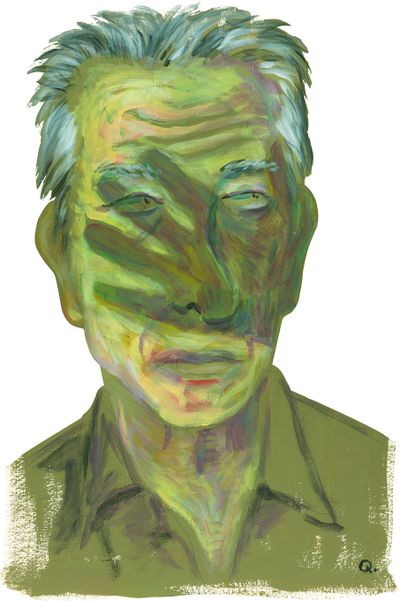Eyes and ears for elders
Seniors suffering abuse may behave differently, become isolated

Roughly one in 10 elders report mistreatment or neglect, according to federal statistics.
But some who suffer emotional, physical or sexual abuse or neglect don’t tell anyone, fearful of retaliation – or reluctant to report someone they care about or depend on.
“How many of us would want to put our own children in jail?” said Linda Petrie, coordinator of the Eastern Washington Long Term Care Ombudsman program.
Friends, relatives, caregivers and neighbors of “vulnerable adults” – anyone 60 or older who can’t take care of themselves – can keep their eyes open for signs of potential abuse, however.
The “protective investigators” who follow up on reports work for a variety of agencies, including health, welfare and law enforcement departments, but also the offices of the attorney general and the state auditor (who might look into Medicaid and other fraud).
Acronyms flew last week at a panel where a half-dozen investigators explained their roles and jurisdictions at a meeting designed to foster connections among people working with vulnerable adults, including the elderly. Vulnerable Adult Links United, or VALU, meets monthly at the attorney general’s office.
Even for the professionals, the system can be confusing.
For a consumer who suspects a senior’s being abused, though, it’s simple to alert investigators. It takes a phone call to launch a probe into possible physical, financial or other abuse.
“We take referrals from anybody who wants to make a referral,” said Patrick Stickel, field services administrator for Adult Protective Services at the Department of Social and Health Services.
That includes professionals such as case managers, police officers and people working at other agencies. “Mandatory reporters” of possible abuse include workers at licensed living facilities, social workers, police and heath care providers.
“But we also get a lot from family members,” Stickel said. “We’ve got a lot of family members calling on other family members.”
About 70 percent of alleged perpetrators are elders’ family members, Stickel said: “There’s a lot of kids and grandkids stealing from their parents and grandparents.”
A person doesn’t need “direct evidence” to prompt an investigation, he added: “You don’t have to have a picture. You don’t have to be an eyewitness. You just have to have reasonable cause to believe something not good is happening with that vulnerable adult and call us. It’s our job to determine whether or not it fits our criteria.”
The signs of elder abuse can be obvious or subtle. Among them:
• Behavior changes. Maybe a talkative person suddenly goes quiet, or a person with hobbies suddenly has none.
“That kind of withdrawing away from their normal life, that’s a red flag,” Stickel said.
• Isolation. An abusive family member, for example, who has started making frequent visits to the elder’s home or moved in might repeatedly tell visitors the elder is unavailable – sleeping or sick – or just let their door go unanswered.
“We call it the stiff arm,” Stickel said.
• Signs of physical injury. Pressure marks, abrasions and burns can indicate mistreatment or neglect. While bruising on a senior’s arms and legs might be explained by accidental bumps, bruising elsewhere on the body deserves attention, Petrie said.
• Abandonment or neglect. When a caregiver leaves a vulnerable adult without basic necessities, it’s a form of abuse. The elder might have been deserted in their home, their physical appearance might have suddenly declined, their health problems might have gone untreated, or their living conditions might be unsafe.
• Missing property or cash. Money might have been transferred suddenly or checks or bank cards used without the elder’s OK.
Lynn Mounsey runs VALU.
She’s an assistant attorney general and a former Spokane County prosecutor who prosecuted people who abused and killed vulnerable adults. They included a certified nursing assistant found guilty of manslaughter for negligent care in an elderly woman’s death.
The group was formed so people working in their various fields to protect vulnerable adults could connect with one another: “We realized the net needed to be global in our community,” Mounsey said.
The net can extend to laypeople.
“Check in every now and again” on elders, she said. “If they won’t come out from behind the door, they won’t open it all the way, and they used to be very friendly – that might be something worth trying to further explore.”
Maybe there’s an abuser in the house with them. Maybe they’re losing weight from neglect and unable to dress themselves.
“People can decline fairly quickly, and they either don’t know how to reach for help or they’re unable to call for help,” Mounsey said. “Or they don’t know there’s help available.”
Stickel said reporters’ names may be hidden from reports, although they may be disclosed in cases that go to law enforcement agencies or court.
And “if you’re wrong – if we go out and do an investigation and we don’t find anything – then we celebrate,” Stickel said.